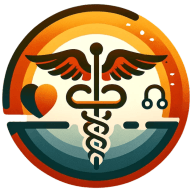6 Things Experienced Medical Directors Wish They Knew Earlier
Medical directors play a crucial role in shaping healthcare delivery and organizational success. Their journey is filled with valuable lessons that can only be learned through experience. This article reveals key insights that seasoned medical directors wish they had known earlier in their careers, offering a roadmap for both aspiring and current healthcare leaders.
- Listen and Embrace Vulnerability as a Leader
- Master the Art of Effective Delegation
- Balance Clinical Practice with Administrative Duties
- Forge Strong Bonds with Hospital Administration
- Stay Informed on Healthcare Policies
- Implement Data-Driven Decision-Making in Healthcare
Listen and Embrace Vulnerability as a Leader
To my younger self stepping into the role of Medical Director, I'd say: "Your greatest tool isn't your medical expertise—it's your ability to listen."
Early on, I thought leadership meant having all the answers. But I've learned that true impact comes from understanding the stories behind the diagnoses—the fears of a patient struggling with depression, the burnout in a colleague's voice, the gaps in care that only frontline staff see.
I wish I'd known sooner that vulnerability isn't weakness. Asking for help, delegating, and admitting uncertainty don't undermine authority; they build trust. And in mental health care, trust is the foundation of healing.
Lastly, protect your own well-being. You can't pour from an empty cup. Schedule that lunch break, say 'no' when needed, and remember: compassion starts with yourself.

Master the Art of Effective Delegation
Effective delegation is a crucial skill for medical directors to master. By entrusting tasks to capable team members, directors can focus on high-level strategic decisions. This approach not only empowers staff but also fosters a sense of ownership and responsibility throughout the organization.
Delegation helps in developing future leaders and ensures smoother operations even in the director's absence. It's important to match tasks with team members' strengths and provide necessary support. Start delegating more tasks today to build a stronger, more efficient healthcare team.
Balance Clinical Practice with Administrative Duties
Striking a balance between clinical practice and administrative duties is essential for medical directors. Maintaining clinical skills keeps directors connected to patient care realities and staff challenges. This hands-on experience informs better administrative decisions and policies.
However, it's crucial not to neglect leadership responsibilities. Finding the right mix may require adjusting schedules and priorities over time. Evaluate your current balance and make changes to ensure you're effective in both roles.
Forge Strong Bonds with Hospital Administration
Building strong relationships with hospital administration is vital for medical directors' success. These connections facilitate better communication, resource allocation, and policy implementation. Understanding the perspectives of administrators helps in aligning clinical goals with organizational objectives.
Regular meetings and open dialogues can prevent misunderstandings and foster a collaborative environment. Strong relationships also make it easier to navigate challenges and implement changes. Take the initiative to strengthen these connections for a more harmonious and effective healthcare organization.
Stay Informed on Healthcare Policies
Staying informed about healthcare policies and regulations is crucial in the ever-evolving medical landscape. New laws and guidelines can significantly impact patient care, hospital operations, and financial decisions. Being well-versed in these areas allows medical directors to guide their teams effectively and ensure compliance.
It also enables proactive planning and adaptation to changes. Regular attendance at conferences, workshops, and policy briefings can help stay current. Make a commitment to dedicate time each week to update your knowledge on healthcare policies and regulations.
Implement Data-Driven Decision-Making in Healthcare
Implementing data-driven decision-making can lead to improved outcomes in healthcare settings. By utilizing analytics and performance metrics, medical directors can identify trends, areas for improvement, and successful strategies. This approach allows for more objective evaluations of programs and interventions.
Data-driven decisions can also help in resource allocation and quality improvement initiatives. However, it's important to balance data with clinical expertise and patient-centered care. Start by identifying key performance indicators and establish a system for regular data review and analysis.

